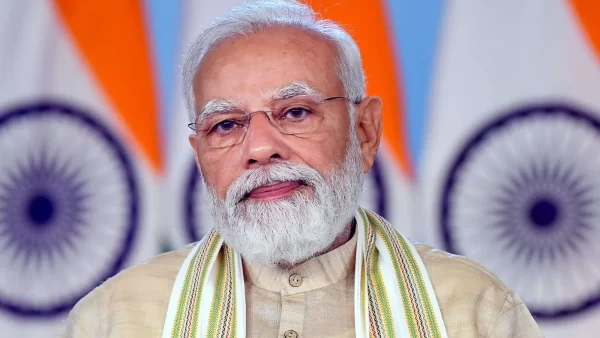rajkotupdates.news:pm-modi-india-plans-to-launch-5g-services-soon: India, under the leadership of Prime Minister Narendra Modi, has set an ambitious timeline for the launch of 5G services in the country. This move is aimed at bolstering India’s digital infrastructure and ensuring that it remains at the forefront of technological advancements. With 5G technology promising faster internet speeds, lower latency, and increased connectivity, the Indian government is keen on capitalizing on its potential to revolutionize various sectors such as healthcare, education, agriculture, and manufacturing. In this article, we will explore the details of PM Modi’s plan and the potential impact of 5G on India’s growth.
Understanding 5G Technology
Before delving into PM Modi’s plan, it is essential to understand the significance of 5G technology. 5G, or the fifth generation of wireless technology, represents a significant leap from its predecessor, 4G. It offers ultra-fast internet speeds, nearly negligible latency, and the capacity to connect billions of devices simultaneously. These features make 5G ideal for powering emerging technologies such as the Internet of Things (IoT), artificial intelligence (AI), and autonomous vehicles.
Also Read: rajkotupdates.news : elon musk pay 11 billion in taxes
PM Modi’s Ambitious Timeline
PM Modi has set an ambitious timeline for the launch of 5G services in India. During a recent conference, he announced that India aims to roll out 5G technology by [insert timeline]. This aggressive timeline reflects the government’s commitment to expedite the adoption of 5G and keep pace with other countries in the race for technological supremacy. To achieve this goal, the government plans to allocate sufficient spectrum for 5G networks, promote domestic manufacturing of 5G equipment, and establish a favorable regulatory environment for telecom operators.
Boosting Digital Infrastructure
The launch of 5G services in India will provide a massive boost to the country’s digital infrastructure. With faster internet speeds and increased connectivity, businesses will be able to leverage technologies such as AI and IoT to enhance their operations. Industries such as healthcare will benefit from real-time remote consultations, telemedicine, and advanced healthcare solutions. The education sector can leverage 5G to provide immersive virtual learning experiences and bridge the digital divide in remote areas. Additionally, the agricultural sector can utilize IoT and data analytics powered by 5G to improve crop yields, optimize resource utilization, and enable precision farming techniques. Overall, 5G has the potential to revolutionize various sectors and accelerate India’s digital transformation.
Also Read: rajkotupdates.news : elon musk pay 11 billion in taxes
Challenges and Way Forward
While PM Modi’s vision for India’s 5G services is commendable, there are several challenges that need to be addressed. One of the significant challenges is the deployment of the necessary infrastructure to support 5G networks across the vast geographical expanse of India. This will require significant investments in building towers, laying fiber optic cables, and upgrading existing infrastructure. Another challenge is the availability of affordable 5G devices for the masses, as the initial rollout is likely to be expensive.
To overcome these challenges, the government needs to collaborate with telecom operators, equipment manufacturers, and other stakeholders. It should facilitate the development of domestic 5G manufacturing capabilities to reduce dependence on imports and drive down costs. Additionally, the government should streamline the regulatory framework and provide incentives to encourage investments in 5G infrastructure.
Also Read: rajkotupdates.news : elon musk pay 11 billion in taxes
Conclusion
PM Modi’s ambitious timeline for the launch of 5G services in India reflects the government’s determination to leverage technology for national development. The adoption of 5G will not only enhance connectivity and internet speeds but also revolutionize various sectors, including healthcare, education, agriculture, and manufacturing. However, to ensure the successful implementation of 5G, the government needs to address infrastructure challenges, promote domestic manufacturing, and create a favorable regulatory environment. By doing so, India can position itself as a leader in the global 5G race and reap the benefits of a digitally empowered nation.



